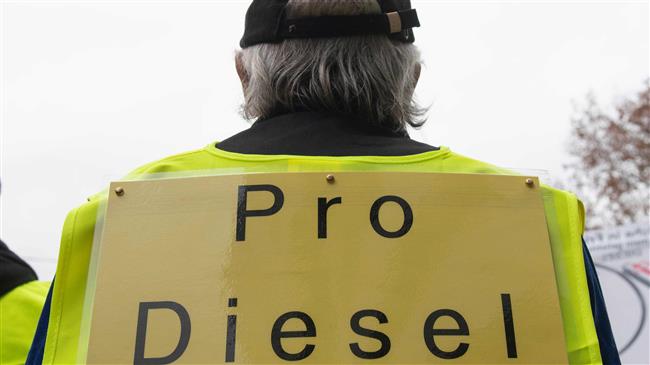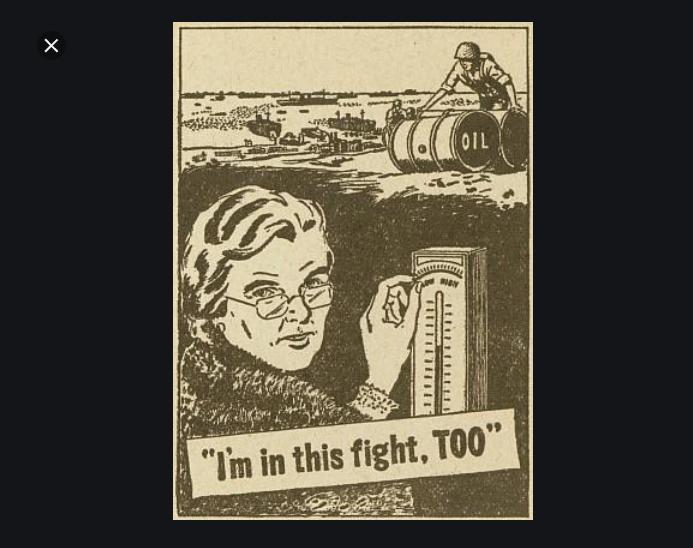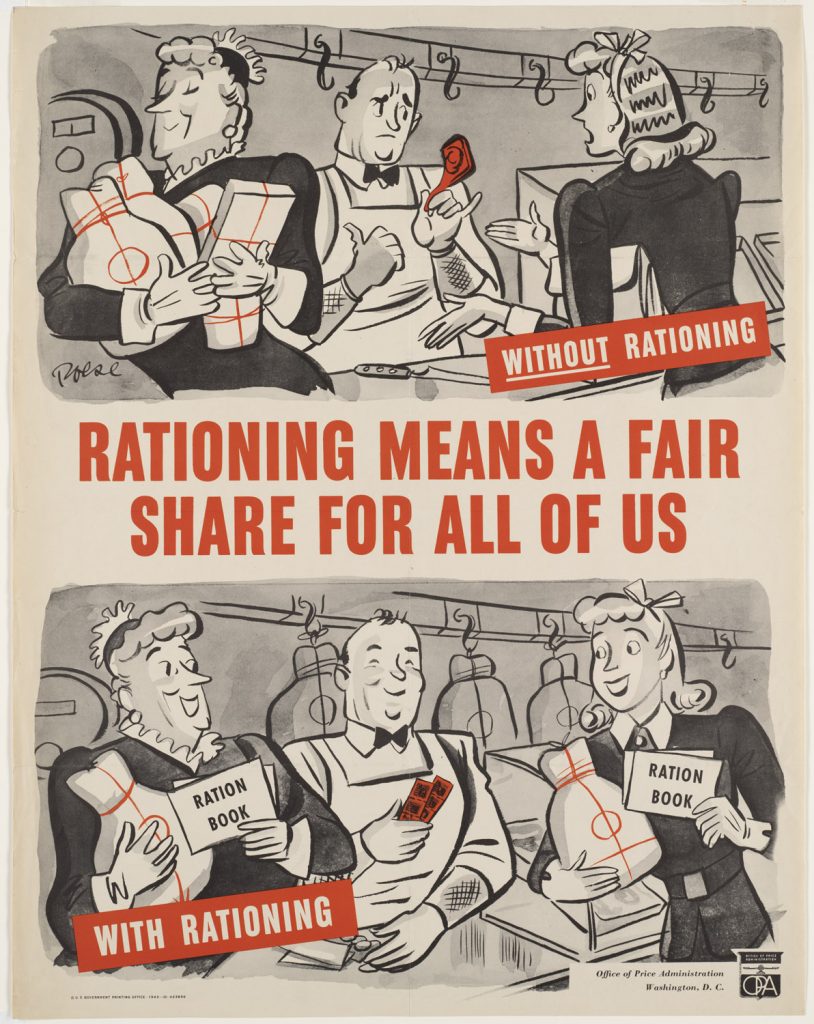Rationing may be the new degrowth. And it may be great
Just much better. As long as it starts in the right places, of course.

Yellow Vests in both France and Germany are mad about (among many other things) new, higher taxes proposed on diesel fuels and/or cars with diesel engines. Those taxes, whose declared, 100% laudable goal is to reduce air pollution, would hit hardest people with low income, who must use their old diesel cars every day, to keep their job or caring for their family, often already living paycheck to paycheck.
Meanwhile, the “biggest change in global fuel regulations since leaded gas went away” is coming: “On Jan. 1, 2020, the big ships that travel the world’s oceans will have to switch from high sulfur sludge-like fuels to lower sulfur fuel”. That is, diesel fuel.
In less than six months, those ships, that nobody will dare slow down because they feed the whole global economy, will directly compete with everybody else already using that same fuel, including poor drivers worldwide. In other words, “Diesel Prices Are Set To Soar”, no matter what the Yellow Vests or their governments do.
The dangers of individual actions to fight pollution (or taxes)
The Yellow Vests diesel issue is, I believe, a good example of a general problem. Individual behaviour changes, or taxes on individual behaviours, are necessary. But, all too often, they are half unfair, half irrelevant, if not counterproductive.
We can see this with many so-called “sin taxes” or “green taxes”, or with calls to individual actions, about climate change, or pollution.
The main problem of many green taxes is as simple as it is big: they hit hardest the least affluent people, instead of, as said here “the very well-off who can much more easily absorb the cost of green taxes [but] do the bulk of the polluting”.
Individual voluntary actions have the same limits. Just like taxes on individual actions they are,very often, necessary. Just never forget that, like with the taxes on diesel engines, stopping at that level is useless, if not counterproductive.
You just can’t make the world a better place by going vegan yourself, or pledging to buy no new clothing for at least one year.
The bigger problem, however, is that the focus on individual actions:
- shifts the burden of doing the right things from corporations and government to individuals who, very often, have much less choices or powers
- create barriers between people who can afford to buy organic food, electric cars, hand-made wool sweathers… from those who can make t to the next paycheck only if they only buy at Walmart or Amazon
- subtract energies and visibility to proposals and demands for systemic changes
Rationing is better

All these limitations, says the same article I already quoted, hint that the time has come for “something more radical, but fairer, than sin taxes”. That is, rationing:
“Setting a population-level limit on something such as meat consumption would create huge incentives for companies to invest more” in the real innovation that is needed these days.

Rationing consumer-oriented end products, however, would still not be enough. And please note that I am not talking about climate change here. Not only, and not first, for sure.
Industry-level rationing is even better
Setting consumption limits at the industry- or infrastructure- level, instead of just for individual actions, may gather support “across political, racial and religious lines” for much needed social and environmental reforms. Because system-level rationing may be the only pacific way to change what badly needs to be changed more, that is socioeconomical systems. System-level rationing may be the most effective, if not the only concrete pacific way to fight global inequality and warming through, for example:
- massive changes to energy grids, as in “Don’t change light bulbs, change energy systems”
- “keeping most of our coal, oil and gas in the ground, plain and simple”
- a reboot of food systems that makes them work with way less fossil hydrocarbons, without depopulating cities
- same reboot and change of priorities for the construction system, which today depends in deadly ways from concrete, to make things that may not be even used
- digital “consumption” (see below)
Rationing bits and digital tech
The current “algorithmic public sphere” is “optimized for engagement, not productive discourse. This has really serious consequences on democracy and free speech, but also on inequality and climate change. These days, every like, every email, every photo uploaded consumes energy that, in 80% of cases, is non-renewable. This has already led to academics saying that “barring radical technological innovations, data may need to be rationed within the next 10 to 15 years”.
The same applies to global services like 5G, IoT or Edge Computing: if built as advertised, all those infrastructures will consume colossal amounts of energy and raw materials that should be really be used somewhere else first, to make real innovation happen.
What is real innovation anyway?
Real innovation is allowing people to have decent healthcare and education, equal opportunities, rich cultural and spiritual life, good relationships… using for at least ten more years the very same smartphone, TV, fridge… they have or buy today.
In order for this to happen, it is crucial to aggregate and bring the right information to as many people as possible. And that is what I am trying to do here, and elsewhere. Any help to do more of this is welcome!
Image sources:
Who writes this, why, and how to help
I am Marco Fioretti, tech writer and aspiring polymath doing human-digital research and popularization.
I do it because YOUR civil rights and the quality of YOUR life depend every year more on how software is used AROUND you.
To this end, I have already shared more than a million words on this blog, without any paywall or user tracking, and am sharing the next million through a newsletter, also without any paywall.
The more direct support I get, the more I can continue to inform for free parents, teachers, decision makers, and everybody else who should know more stuff like this. You can support me with paid subscriptions to my newsletter, donations via PayPal (mfioretti@nexaima.net) or LiberaPay, or in any of the other ways listed here.THANKS for your support!